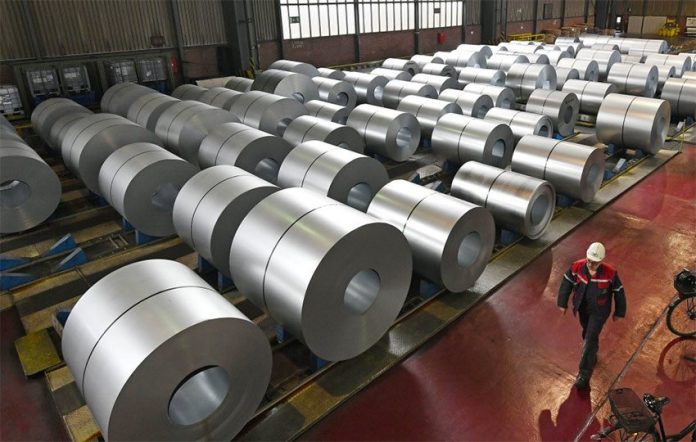Mexico struck back swiftly after the United States announced today that it would impose tariffs on Mexican metal imports.
The government said it would “impose equivalent measures” in response to the announcement by United States Commerce Secretary Wilbur Ross that duties of 25% on Mexican steel and 10% on aluminum would take effect at midnight tonight.
The metal tariffs will also apply to Canada and the European Union.
The government said that Mexico’s reciprocal tariffs would apply to steel flats, light bulbs, pork legs and shoulders, cold meats and prepared foods, apples, grapes, blueberries and a range of cheeses, among other products.
The duties could be as high as those imposed on Mexico and will remain in place while the United States protectionist measures continue, the Secretariat of Economy (SE) said in a statement.
“Mexico deeply regrets and condemns the decision of the United States to impose these tariffs on steel and aluminum imports . . . under the criterion of national security,” the government said.
The statement added that Mexico has repeatedly indicated that these types of measures taken on national security grounds “are not appropriate or justified” and underscored that it is the biggest importer of United States aluminum and the second biggest purchaser of U.S. steel.
The two metals are “inputs that contribute to the competitiveness of several strategic sectors that are highly integrated in North America, such as automotive, aerospace, electrical and electronics,” the government said.
The statement reiterated Mexico’s openness to constructive dialogue with the United States, its support of international trade and its disapproval of unilateral protectionist measures.
The United States’ tariff announcement ends a two-month exemption for its southern neighbor and comes amid continued uncertainty about the future of the North American Free Trade Agreement (NAFTA).
Before the exemption was granted in March, U.S. President Donald Trump said that Mexico and Canada could be spared from the measure “if a new and fair NAFTA agreement is signed.”
In the intervening period, Trump has been hot and cold on the future of the trilateral agreement, saying last month that a deal could be reached “fairly soon” while at times threatening to terminate the 24-year-old treaty. This month he called it a “horrible” disaster for the U.S. economy.”
In addition to using his metal tariffs as a NAFTA negotiation ploy, he has also threatened to make a new agreement conditional on immigration policy but Mexico quickly rebuffed the idea.
The United States’ launch of a tariff probe into vehicle imports last week was also seen as a move designed to pressure its NAFTA partners in negotiations that have been contentious on issues including rules of origin and wages as they apply to the automotive sector.
Before receiving today’s unwelcome news, the top international trade official for Mexico’s influential Business Coordinating Council (CCE) said that the organization had asked the Mexican government to respond to tariffs from the United States “with the same force” by imposing tariffs of its own on U.S. products.
Speaking during a television interview, Moises Kalach also said that Economy Secretary Ildefonso Guajardo has managed to pass a motion in the Senate stipulating that any unilateral protectionist measures imposed would be met with proportionate, reciprocal measures from Mexico.
The trade official said that the tariff issue brought additional “noise” to NAFTA negotiations but added that it was significant that Mexico isn’t alone in facing increased protectionism from its northern neighbor.
Source: El Economista (sp), Noticieros Televisa (sp), La Silla Rota (sp)
